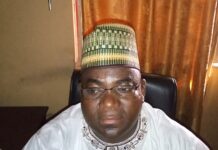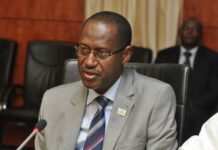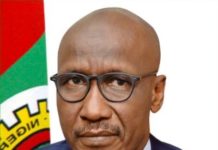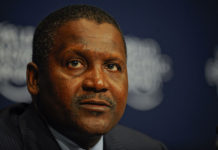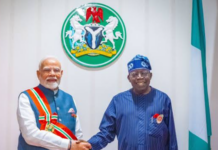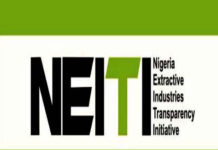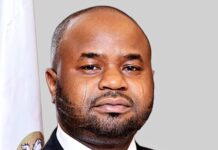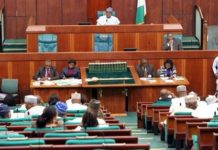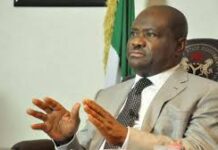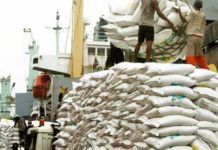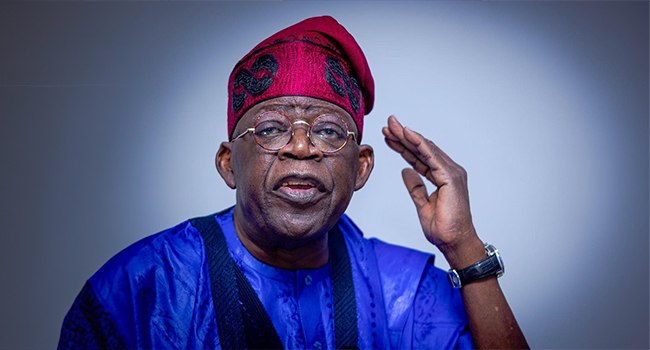
IMF, World Bank and their Russian Roulette with Nigeria
By Umar Farouk Bala
Nigeria’s national debt has become a point of contention among various stakeholders, including global institutions, policymakers, and citizens. While external financial institutions such as the International Monetary Fund (IMF) and the World Bank have long championed borrowing as a means of development, many experts and analysts warn that Nigeria’s increasing debt could have disastrous consequences.
The administration of President Bola Ahmed Tinubu has been particularly focused on securing loans, with the latest being a request for a fresh $2.2 billion credit facility. However, critics argue that this borrowing spree risks plunging the country into a debt trap, one that may suffocate its potential for growth and progress.
The IMF has raised alarms, projecting that by 2026, the federal government could spend nearly 100 percent of its revenue just on servicing its existing debts. This poses a dire scenario, as it suggests the country will be unable to fund critical sectors like healthcare, education, security, and social welfare. This growing debt burden is already severely limiting the government’s ability to fulfill basic public service needs, pushing millions of Nigerians further into poverty.
As of the first quarter of 2024, Nigeria’s total public debt stood at an alarming N121.67 trillion. This includes both domestic and external debt, with domestic debt at N65.65 trillion and external debt at N56.02 trillion. The federal government owes a staggering N111.52 trillion, while state and local governments contribute the remaining N10.15 trillion. This unsustainable debt load is not only causing immediate financial strain but also undermining long-term development efforts.
Financial Derivatives CEO, Bismarck Rewane, has been vocal in highlighting the negative impact of this debt burden. He pointed out that debt servicing is so consuming that it has crippled the government’s ability to invest in infrastructure and essential services. For instance, the N8 trillion spent on debt servicing in 2023 could have been used to build 5,000 kilometers of dual carriage roads, 1,600 schools, 80,000 healthcare centers, or generate 5,000 MW of solar power.
These investments could have sparked economic growth, generated employment, and improved the lives of millions. Yet, Nigeria finds itself continually diverting its resources toward servicing interest payments rather than funding these much-needed projects.
In addition to crippling national investment, the country’s frequent energy crises, marked by grid collapses and inconsistent power supply, exacerbate the challenges posed by the debt crisis. With no end in sight to the energy sector’s instability, the Nigerian government has sought approval for yet another loan facility—a $2.2 billion credit line. While borrowing is a standard practice for many developing nations to finance their budgets, Nigeria’s fragile economy and volatile fiscal landscape warrant caution.
Read Also:
While borrowing can spur growth in certain contexts—such as the post-World War II recovery efforts in Europe through the Marshall Plan—the Nigerian economy remains too fragile to absorb the impact of additional debt without severe consequences. Unlike Europe in the post-war period, Nigeria lacks a robust industrial base, diversified exports, or a stable financial infrastructure to withstand such an aggressive borrowing strategy.
This weak foundation makes it difficult for the country to effectively service its debts, turning loans from a tool for development into a dangerous gamble. The World Bank has attempted to reassure global stakeholders by describing Nigeria’s debt as “statistically sustainable.” However, it has also cautioned that the country’s debt remains “vulnerable and costly.”
This warning underscores the dual threat of rising debt and declining national revenue. The burden of these loans, in the form of high interest payments, will continue to drain the country’s finances. And, as is often the case in situations like this, it is the Nigerian people who will bear the brunt of these costs through austerity measures, higher taxes, and reduced government services.
When countries default on their debts, they are typically forced into debt restructuring agreements, often involving painful austerity measures. These reforms, which might include subsidy removals, currency devaluation, and tax hikes, are usually demanded by international creditors to protect their interests. Nigeria has already experienced some of these measures, such as the removal of fuel subsidies and the unification of exchange rates, which have led to increased living costs, widespread public dissatisfaction, and protests.
These policies, which the IMF and World Bank often recommend as part of their neoliberal approach to managing debt, have proven counterproductive in many developing countries. Instead of fostering growth, they have deepened poverty, particularly for vulnerable populations who have no buffer against rising inflation and reduced social services.
At the same time, Nigeria’s government must adopt more prudent fiscal policies. Like individuals who avoid unnecessary debt, the government must prioritize “good debt”—loans taken for productive investments that can generate returns—while avoiding “bad debt” that does not result in tangible economic benefits.
Borrowing without a clear repayment plan and without clear avenues for generating revenue to service the debt is a recipe for perpetual economic decline. The IMF and World Bank must reconsider their approach to Nigeria’s economic challenges, focusing more on policies that support long-term structural reforms rather than imposing short-term austerity measures that deepen the country’s economic fragility.
Only through prudent debt management and strategic investment can Nigeria hope to break free from this cycle of debt dependency and embark on a path toward sustainable development.
Umar Farouk Bala holds a Bachelor’s Degree in Political Science & International Relations from Nile University of Nigeria. He was also a PR Nigeria Young Communication Fellow, 2024 cohort. Email:[email protected]


